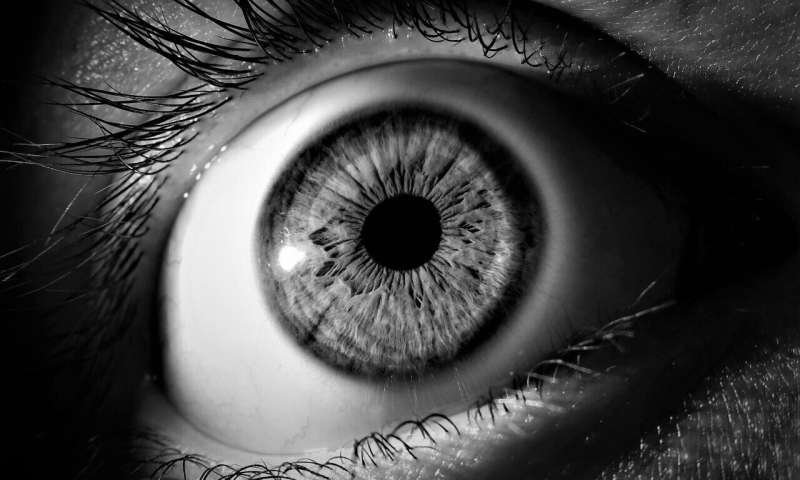Credit: CC0 Public Domain
A medication frequently used to treat diabetic macular edema, which is the most common cause of blindness in people with diabetes, is less effective when used to treat the condition in Black patients, new study results show. Led by researchers at Boston Medical Center, the study demonstrated that Black patients were significantly less likely than white patients to show short-term visual improvement after both a single injection and a series of three injections with the drug bevacizumab (Avastin), the most common treatment in the U.S. for diabetic macular edema. Published in the American Journal of Ophthalmology, the results underscore the need to increase diversity in participation in clinical trials for the treatment of diabetic macular edema in order to develop treatments that are effective for all patients.
This is the first study looking at race as a factor in the treatment of diabetic macular edema, a condition that results from fluid build-up around the macula, producing blurry and distorted vision. Diabetic macular edema is caused by diabetic retinopathy, a complication of diabetes that is the leading cause of blindness among working-age adults in the U.S. Of the approximately 7.7 million Americans who have diabetic retinopathy, it is estimated that 775,000 of those individuals also have diabetic macular edema, which is the leading cause of vision loss for those with diabetes.
The three medications that are most commonly used to treat diabetic macular edema—aflibercept, bevacizumab, and ranibizumab—were initially developed to treat age related macular degeneration (AMD), which is the number one cause of blindness in older patients and a condition that primarily affects white individuals. After these medications were found to be effective for AMD, they were then studied for the treatment of diabetic eye disease, which disproportionately affects Black patients.
"The results from our study show a gap in treatment for Black individuals with diabetic macular edema, despite the fact that they are more heavily impacted by this disease," said Manju Subramanian, MD, an ophthalmologic surgeon at Boston Medical Center and the study's senior and corresponding author. "When clinical research trials don't include enough diversity, it will not provide comprehensive data about the efficacy across different racial and ethnic groups, which as we can see, results in disparities in care."
For this study, the researchers focused on bevacizumab (Avastin), given that it is a first-line treatment for diabetic macular edema. They used data from electronic medical records of patients treated for the condition at Boston Medical Center—314 received one injection of the medication, and 151 received the series of three injections of the same medication. After the first injection, 26.71 percent of Black patients compared to 39.39 percent of Hispanic and 50 percent of White patients experienced improved visual acuity. For those who received three injections, 33.82 percent of Black patients compared to 54.76 percent of Hispanic patients and 58.54 percent of white patients experienced improvements in their visual acuity.
According to the U. S. Department of Health and Human Services Office of Minority Health, African American and Black adults are 60 percent more likely to have been diagnosed with diabetes than white, non-Hispanic adults. Evidence points to a variety of factors that play a role in the increased diabetes incidence in Black Americans, including biological risk factors, lower access to health care, and socioeconomic status.
"Black individuals represent 13.4 percent of the US population but carry at least twice the prevalence of diabetic macular edema compared to white individuals, and should be represented in future research accordingly," said Subramanian, also an associate professor of ophthalmology at Boston University School of Medicine.
More information: Pawarissara Osathanugrah et al, The Impact of Race on Short Term Treatment Response to Bevacizumab in Diabetic Macular Edema, American Journal of Ophthalmology (2020). DOI: 10.1016/j.ajo.2020.09.042
Provided by Boston Medical Center





















